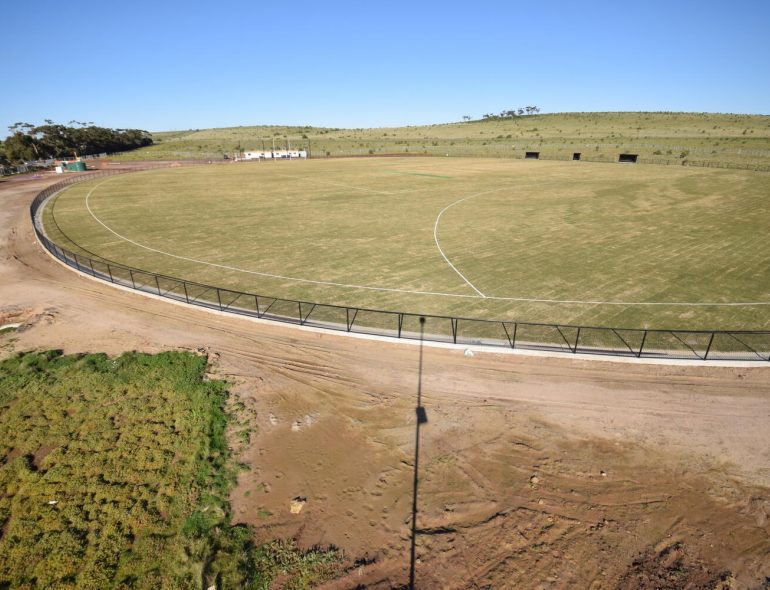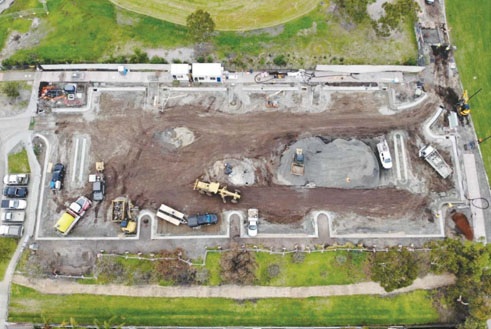
Sports Field testing for Community Sports Grounds and Recreation Reserves
Aspendale Gardens Sports Ground and Chadwick Reserve in Bayside have both received major overhauls in recent months, with sports fields, lighting and landscaping at Chadwick Reserve and sports fields and parking at Aspendale Gardens Sports Ground. In Melton, the $13.8m development of Eynesbury Recreation Reserve also continued at pace, with significant work completed on an oval for senior cricket and AFL, as well as installation of sports lighting.
Civiltest works collaboratively with engineering consultants, construction managers and agronomists at the early stage of construction to ensure the correct material is used, which avoids longer term issues. It’s also critical to ensure the process is cost effective for their clients.
The real key to a successful sports field surface is testing materials early, thoroughly and frequently, according to Darren Ashdown, Sports Field Laboratory Manager for Civiltest.
“It can often take several attempts to achieve the correct source and blend of materials. To meet the needs of clients, Civiltest’s Sports Field laboratory, which is NATA accredited, has to be flexible, innovative, accurate and provide prompt, good value laboratory testing services.” says Darren.
If the right surface is not achieved, this can lead to construction delays, increased costs, costly long-term maintenance or injury.
What goes on underground supports the overall performance and quality of the sports field surface. It’s not just soil and grass.
Civiltest assists in finding the right sand materials required to produce a top quality sports field.
It is most common for a bundle or suite of tests to be undertaken, which will determine the majority of information required by agronomists or engineering consultants. Tests include assessment of Organic Matter Content, Particle Size Distribution, Saturated Hydraulic Conductivity, Total & Capillary Porosities and pH & Electrical conductivity to name a few.

The full bundle of tests requires dozens of individual processes per sample, sieving, saturating, draining and drying, which can take hours or days depending on the material. Most tests require high attention to detail, requiring excellent concentration, high quality laboratory processes for labelling and record keeping.
The sand materials required to produce a top quality sports field surface are rarely dug from the ground ready to use – there is a complex process involved.
The rootzone sands must consistently meet tight specifications relating to particle size, drainage and water holding capacity. Some materials that meet the correct particle size ranges may drain too fast, not retaining enough water for optimal root growth. Based on the tests conducted by Civiltest, quarries and material suppliers process and blend variations of these materials to deliver the correct product.
“Occasionally during construction and materials placement, sports field projects encounter pockets or wet patches of poor draining materials. Clients rely on Civiltest to perform specialised drainage and material testing to help determine if the issue is related to the supplied materials, subgrade preparation, construction processes or a combination of many other variables,” said Darren.
Testing materials early and frequently ensures clients are able to secure a cost effective and plentiful source of materials to meet requirements.
Civiltest’s Sports Field laboratory is regularly employed due to its ability to offer accurate, rapid and conclusive outcomes, which keep the supply of materials rolling in and avoid costly construction delays.
Images Courtesy: Bayside News and City of Melton.